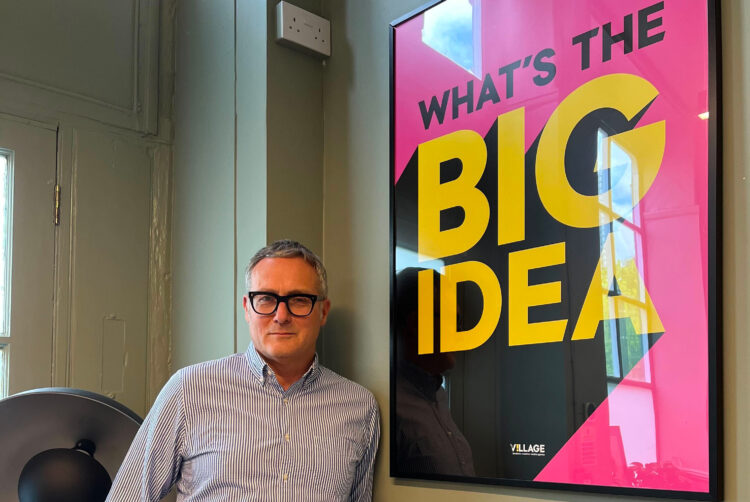Opinion: Career Leaders
The over-50s need a re-brand to make the workplace more diverse, more collaborative, and more economically viable. How about Generation YStopNow?
Embracing his inner Lord Kitchener, Chancellor Jeremy Hunt’s recent call to the over-50s that “Britain Needs You” by returning to offices is a largely positive message, albeit sadly undermined by his assumption that they are all on the golf course.
Hard to believe I know, but I am a 50-something media planner, loving the daily challenge and opportunity our clients present us with. I don’t play golf, but I do believe that we, collectively, need to visit our bias and prejudice. The challenge is for attitudinal change in an industry often too keen to offload older workers.
Over-50s have hugely valuable life and professional experience to share. My colleague and collaborator, Emma Fahy, firmly in Gen Z territory, agrees. She shares my passion for pale ale, fantasy football and going to the gym (less so music tastes), while maintaining that working in a diverse office is an important factor for her, particularly one where she can benefit from learning from us ‘oldies’, and our vast experience.
A recent CMI study shows 58% of employers admit to being less likely to recruit people over 50. This kind of shocking statistic inevitably leads to a lack of confidence among this demographic, and a disassociation from the increasingly complex job application process.
There are also the economic benefits of employing more over-50s. This age group is rapidly becoming the biggest spender in every category, yet featured in 15% of media images. In fact, 72% of the 50+ community consider the media’s perception of their lifestyle to be outdated. In the fashion industry, over-50s accounted for 45% of spend last year and have spent 24% more in the year to date than last year.
Ageist bias in media planning
What this means for those working within the media industry, is that it’s important to get ads right for older audiences. ITV’s recent Wise Up seminar highlighted this. The best way to do this is to have people in this age group involved in the communication process, rather than those who may not understand that generation, other than cliches. Worth noting, of course, that there is a massive difference between a 50- and an 80-year-old — you wouldn’t group 17-year-olds with 40-year-olds.
The US charity Age Majority calls the over-50s ‘Active Agers’, an important group of older consumers who are mentally, socially and digitally agile. Is this really a group to be ignored?
The current retirement age in the UK is 66 with a mooted rise to 68 within a few years. There are a lot of people who would love to play golf every day (I have a few friends who do), but the vast majority cannot afford to. We are all living longer, the pension age is getting older, and it makes economic sense for the Government to want people to continue working. We don’t need to be cajoled into returning to work, the desperate state of the economy is driving us to do so.
Boredom is another factor which dissuades many over-50s from continuing in roles they find uninspiring and demotivating. More than nine in 10 (92%) of workers in their mid-50s and older are prepared to take a salary cut to learn a new skill; challenging the myths that older workers are expensive to hire and “stuck in their ways”.
The over-50s need a re-brand. How about Generation YStopNow? If employers can look beyond age and see the abundance of untapped potential among our generation, the workplace will become more diverse, more interesting, more collaborative and more economically viable.
Learning from redundancy
To attract the over 50s, employers should offer flexible working, training and learning opportunities, and responsibility. An alarming number of women leave the workplace due to the menopause.
If we introduce good menopause policies, we might encourage women to stay. In doing this, employers will gain economically; they strengthen their workforce by retaining and attracting people with great insight and experience, as well as a perspective into a demographic highly valued by advertisers.
As a result of being made redundant during Covid-19, I gained a revealing insight into the sometimes insidious, frequently blatant examples of ageism. I was fortunate to land a new role at The Village, where I’m thoroughly enjoying being part of a genuinely diverse team.
We also share a common desire to see urgent and demonstrable action from Government and employers to achieve a level playing field of opportunity for golf lovers, pale ale fans and fitness enthusiasts alike — whichever end of the age spectrum they happen to be.
Chris Catton is head of broadcast at independent media strategy and buying agency, The Village
Career Leaders: The Media Leader‘s weekly bulletin with thought leadership, news and analysis dedicated about media careers, training, development and wellbeing.
Sign up for free to ensure you stay up to date every Tuesday.





